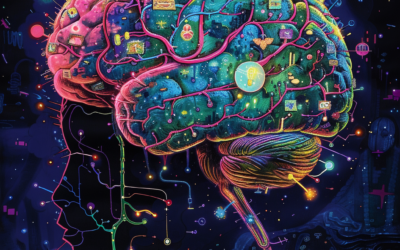 Its been known for a long time that too many choices can have a negative impact on sales. A study done at Columbia University in 2000 showed people confronted with 24 gourmet jam jars vs 6 showed that whilst the larger selection increased the likelihood of people stopping and looking, it reduced purchasing. In that study where 30% of those presented with the limited selection made a purchase, only 3% of those with the broad selection bought something (When Choice is Demotivating: Can One Desire Too Much of a Good Thing? Iyengar, S. S., & Lepper, M. Journal of Personality and Social Psychology, 79, 995-1006. (2000).)
Its been known for a long time that too many choices can have a negative impact on sales. A study done at Columbia University in 2000 showed people confronted with 24 gourmet jam jars vs 6 showed that whilst the larger selection increased the likelihood of people stopping and looking, it reduced purchasing. In that study where 30% of those presented with the limited selection made a purchase, only 3% of those with the broad selection bought something (When Choice is Demotivating: Can One Desire Too Much of a Good Thing? Iyengar, S. S., & Lepper, M. Journal of Personality and Social Psychology, 79, 995-1006. (2000).)
Other research conducted at the University of Minnesota showed that when purchase choices were too complex it reduced people’s stamina, self control and ability to make more risky decisions.
In one experiment, 18 women were told to choose among a variety of products, including T-shirts, scented candles, shampoos and others. Another 20 women didn’t make choices but were asked to consider their preferences.
Both groups were then asked to drink an unpleasant-tasting concoction — an orange drink mixed with vinegar and water — in return for a nickel for each ounce consumed.
“We found that when people had been making choices, they drank less than when people had just been thinking about their preferences,” Vohs said.
This suggests that those who didn’t make choices had more capacity for “self control,” Vohs said.
In other experiments, the researchers found that making choices made it tougher for participants to perform well on a math test, avoid distractions and take action regarding a malfunctioning videotape. [From HealthDay – Choices Sap Your Stamina, Self Control: Study by Randy Dotinga.]
The manipulative marketer or retailer might say this is a good thing. If people have less self control they’ll be more likely to buy, even if that purchase decision is risky. But it needs to be remembered that when a purchaser feels confused and has less self control they’re just as likely to opt not to buy and hence miss out on that great deal as they are to buy – its a double edged sword. On one hand the risk may be to miss out on a genuinely great deal, on the other to purchase something they really don’t end up liking or which wasn’t a bargain after all.
Generally speaking the trick seems to be to find the midway point between having enough choice but not too much. Or give a lot of choice on some products to stop people and get them in the store, but then curate options for other products which you really want to sell.
The other option to consider is the role of sales staff in moderating the choice equation – or indeed some of the new technologies available. If you have a large selection but then a sales person asked a question or two about preferences which enabled them to make a strong recommendation which narrowed the options down to 3 then the problem is solved. That’s essentially the same role a good waiter will play at a restaurant. Have too extensive a menu and waiters who are order takers only and people get confused & indecisive plus satisfaction tends to go down which impacts on return visits. Assist them in narrowing down the options and the core of the problem is solved.
In self service environments, be they food or retail, its not always possible to have that many staff so you need to look at labels, shelf talkers, signage and even better the newer interactive digital signage to help people reduce the options facing them.
Image : Stephanie Booth
![Reblog this post [with Zemanta]](http://img.zemanta.com/reblog_e.png?x-id=b3e3d183-74c2-487e-bb6c-610b95b4cff2)



